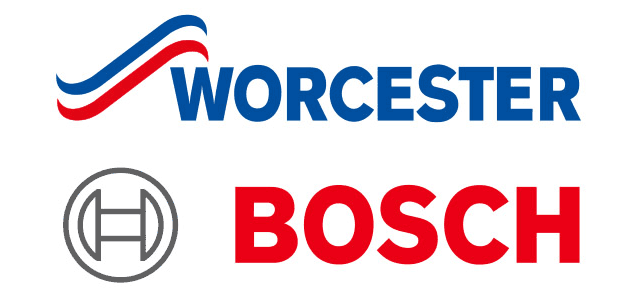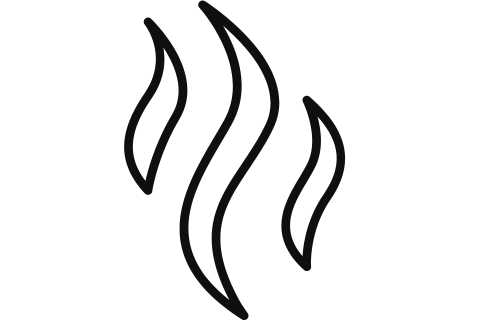Worcester Bosch Boiler U9 Fault Code Meaning & How to Fix
Although U9 is technically not a fault code it can indicate that there are underlying issues with your boiler’s display screen and it is not listed in the user manuals or on the standard fault list so it can be difficult to determine what it means.
All repairs must be made by a Gas Safe registered engineer.
This guide will help to identify the U9 fault, and what your Worcester Bosch boiler might need to be repaired if it occurs.
Need a new boiler? Compare Worcester Bosch boilers and prices here

What does the Worcester Bosch Fault code U9 mean?

The letter “U” will be displayed on your Worcester boiler screen if the boiler’s temperature is higher than 100 degrees celsius. The number after U shows how many degrees it has risen beyond that temperature. In the example of U9, it has reached 109degc.
U9 is often seen when the heating system has been successfully switched on, but then switches itself off quickly. This is when your heating unit heats up while it’s running and then it locks out to protect you from further overheating.
As time goes by, you may notice that U’s number is decreasing from 9 which indicates that the unit has cooled down., and once this has happened it may be a good idea to check your boiler pressure, and if has dropped too low, then ensure that you repressurise your Worcester boiler.
What is the Worcester Bosch Fault Code U9 and Why?
Overheating of a Worcester Bosch boiler can often be caused by a blockage in the heating system of your home, which includes the pipes and radiators as well as the boiler.
The boiler produces just the right amount heat for the water volume that should be flowing through it at any given time.
If the water is not circulating properly, the heat can end up being distributed to the boiler unit, posing a risk of internal damage.

Limescale build-up on the Heat Exchanger
Minerals such as calcium, magnesium and iron are found in the water that comes into your home. Limescale refers to the accumulation of minerals left behind by water vapor.
This is especially common in areas that have “hard” water. It means the water has a high mineral count.
The “kettling” sound, which sounds like a stove-top kettle, is one indicator of limescale in this system.
Limescale can form in any heating system area and cause circulation problems, however, the heat exchanger is where it most often causes serious damage.
This is the part of the Worcester boiler unit that heats water by using heat from burning fuel and limescale can block this part and cause the heat exchanger to crack.
These cracks can lead to internal leaks that reduce the flow of water through the central heating system.
This could cause very hot water to leave the taps and overheat your Worcester Bosch boiler.
Limescale build-up in the Flow Pipe
The return pipe returns heated water to your boiler.
A part known as a thermistor, or thermal-resistor, is located within the flow pipe. This essentially is a flow temperature sensor. It measures resistance and transmits them to the central hub of operation in the boiler. This is the printed circuit board (PCB).
These readings are used to measure temperature and signal the PCB if the system is operating safely. This is the first stage that the PCB must verify before the next one can take place.
Limescale can build up around the thermistor and cause hotspots, which means that the water has less room to flow.
These areas might have higher temperatures than others, so the PCB may act as though the entire system is operating at an elevated temperature.
The Worcester Bosch Boiler U9 fault code would not be correct in this case because only one part of the flow pipe was overheated.
Air Blockage
It’s possible that your radiators are heating unevenly, or not at all.
When the water is being repaired or moved by the pump, air can be introduced to the system.
This could eventually stop water flowing freely through the pipes and affect how the hot water temperature sensor works.
Pump Fault
The pump pushes the heated water from your Worcester Boschboiler into the pipes.
If the pump is not working properly, hot water may stop leaving the unit and cause overheating.
Your pump may be making strange noises when it attempts to spin, but fails.
It can block with heat sludge or air, which is a mixture of rust-like debris and water that flakes off pipes and eventually builds up.
These can block the pump’s moving parts and can cause them to jam.
You may have had your boiler repaired or replaced recently.
Thermistor Failure
If there is no obstruction, it could be that the thermistor within the flow pipe is not reading the flow temperature sensor correctly and it is possible for the part to stop working because of age or other malfunctions.
How do I fix my Worcester Bosch Boiler with U9 error code?

Overheating boilers can prove dangerous or even cause a boiler explosion so a Gas Safe registered engineer will be required to diagnose and repair them.
You can however check your radiators to make sure they are heating up regularly.
You can safely bleed your radiators if there is an obstruction and this is a process which allows water to flow again and air to escape the radiators.
You will need a radiator keys to do this and these can be purchased at most DIY stores for just a few pence. Regular bleeding is a good idea to keep your heating system in tip-top shape.
How to Repair a Worcester Boiler Error U9
If you haven’t been able to fix the problem by flushing your radiators, an engineer will be needed.
You might find it useful to record any helpful information, such as U9’s appearance in the heating process or if you hear any unusual sounds like kettling.
If there is Limescale build-up on the Heat Exchanger
An engineer might be able, if caught in time, to remove the limescale and not have to replace the heat exchanging unit.
This is called a flush. It involves the sending of special chemicals through the heating system to dissolve limescale.
This service costs based on the number of radiators in your home. It also determines how much chemicals are required and the time it takes.
The heat exchanger will need to be replaced if it has suffered severe damage or cracks. This is one of the most expensive parts and can run to £500 depending on the model of your boiler.
This may also have caused a leak. The boiler’s rest will need to be inspected in order to make sure that no other parts are damaged by moisture.
A filter can be installed to collect any residue from the water as it flows. This will prevent future problems. This is especially important for hard water areas, where limescale problems are the most prevalent.
If there is limescale build-up in the Flow Pipe
It can be cleaned with a flush. However, if the thermistor has been damaged by limescale, it may need to be replaced.
Sometimes, the pipe may have to be removed entirely.

If the Pump Is Faulty
It is easy to check the speed setting and install the pump.
You can also remove air blockages quickly. However, removing heating sludge takes more time and is more expensive.
A flush is used to remove the sludge. However, there are different chemicals. Cost depends on how many radiators are installed in your house.
To prevent any future buildups, a magnetic filter should be installed. However, your engineer might recommend that you flush the boiler after each service.
Fault with the Thermistor
Your engineer will use a multimeter to check the functioning of the thermistor. It measures resistance.
The thermistor that gives incorrect readings or no readings will need to replaced.
This is, unless there are any other complications, a simple job that usually costs about ten pounds.
Which Worcester Bosch Models Use The U9 Fault Code

Whatever type of Worcester Bosch boiler, U9 indicates that the boiler has reached 109degc. This applies to both conventional and combi boilers. If your boiler is overheating it means it is using too much gas and is inefficient so it may be a good idea to read our new boiler cost guide as it may be cheaper to buy a new A-rated boiler and save on repair bills and your energy bills at the same time.

FAQ’S
How can homeowners prevent limescale buildup in Worcester Bosch boilers, especially in areas with hard water?
Homeowners can prevent limescale buildup in Worcester Bosch boilers, particularly in hard water areas, by installing a water softener or using descaling agents regularly. Additionally, installing a magnetic filter and performing routine maintenance like flushing the system can help prevent limescale accumulation.
Are there any signs apart from the U9 fault code that suggest a Worcester boiler may be overheating or having circulation problems?
Signs of potential overheating or circulation problems in Worcester boilers go beyond the U9 fault code, include kettling sounds resembling boiling water, uneven heating of radiators, unusual pump noises, inconsistent hot water supply, and thermistor failures.
Kettling sounds often indicate limescale buildup or overheating, while uneven heating suggests circulation issues. Strange pump noises and inconsistent hot water flow may signify blockages or malfunctions, and thermistor failures can lead to inaccurate temperature readings and potential overheating problems within the system.
How often should boiler servicing be done to stop limescale buildup and pump failure in Worcester boilers?
Worcester Bosch boiler servicing should ideally be conducted annually to prevent limescale buildup and pump failure. Regular servicing helps maintain the efficiency and functionality of the boiler system, allowing for early detection and resolution of potential issues such as limescale accumulation and pump malfunctions. This proactive approach not only ensures optimal performance but also prolongs the lifespan of your boiler while reducing the risk of costly repairs in the long run.